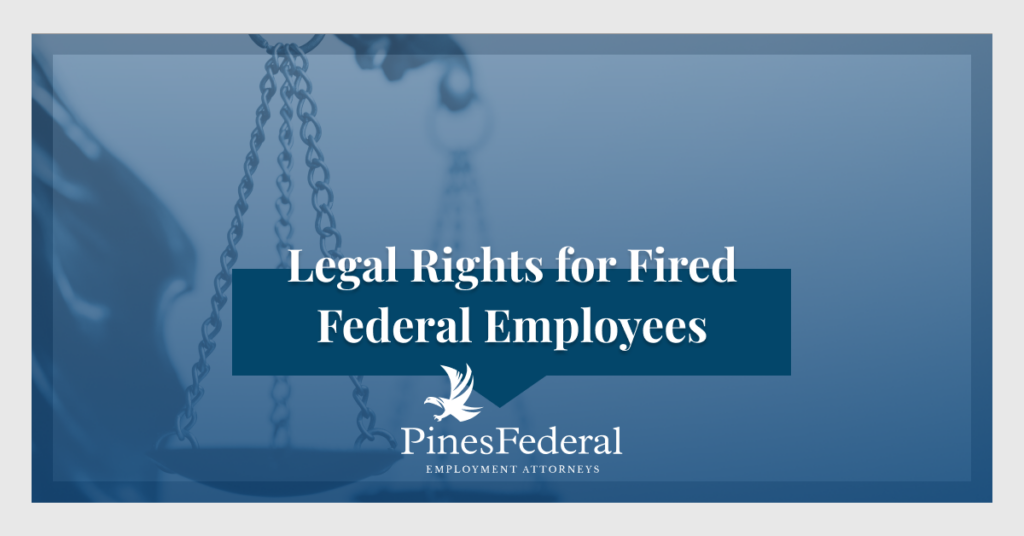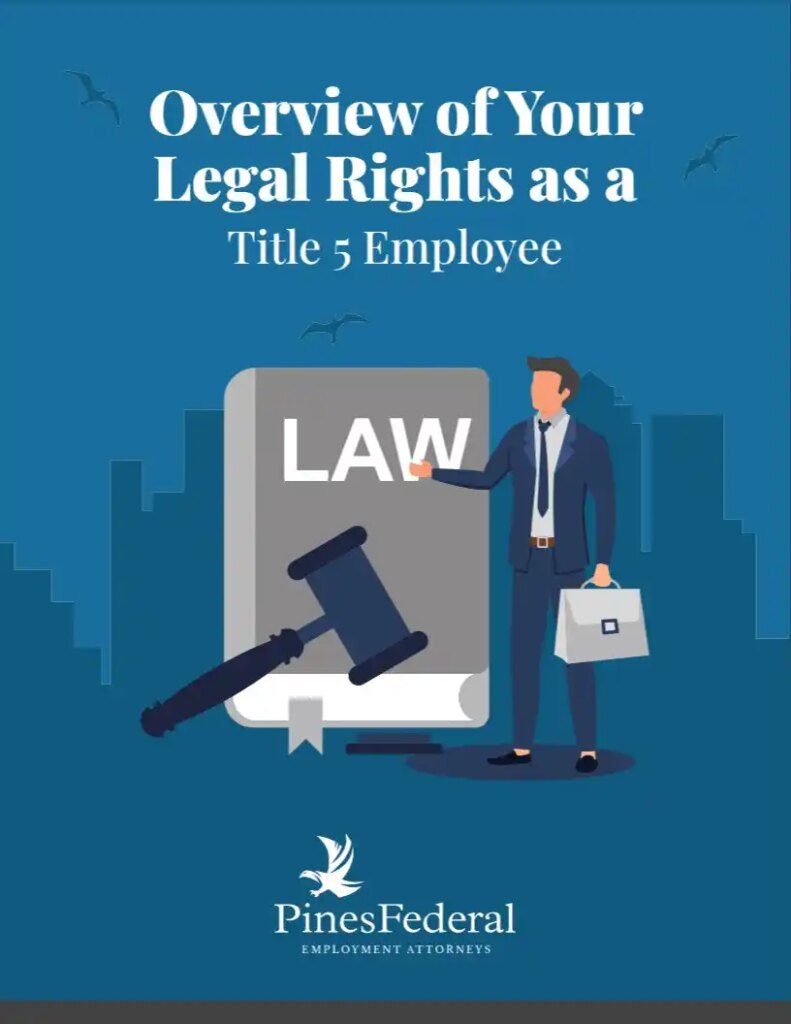
As a Title 5 federal employee, it can be disheartening and overwhelming to receive notice of proposed removal from your job.
However, it’s important to know that you have legal rights and options to fight such a decision. In this article, we will discuss the rights you have when you’ve been terminated from the federal government.
We will also explore how you can contest a proposed removal and how our experienced team of federal employment lawyers can help.
Please call (800) 801-0598 or fill out our online form today for a consultation.
What Rights Do I Have as a Fired Federal Employee?
As a federal employee, a number of laws and regulations work together to protect you from arbitrary termination. These laws also work to protect you from discrimination or retaliation in the workplace.
The most important of these laws include the Civil Service Reform Act, the Americans with Disabilities Act, and Title VII of the Civil Rights Act of 1964. However, all these laws combine to enshrine rights given to you by the Constitution.
Under these laws, you have the following rights as a federal employee:
- The Right to Due Process. Before effecting your termination, your employer must give you at least 30 days’ advance notice and a detailed description of your alleged misconduct. They must also give you an opportunity to respond to the proposed notice and review the evidence that they relied upon.
- The Right to Appeal. You also have the right to appeal your case to the Merit Systems Protection Board (MSPB), an independent federal agency that handles appeals from federal employees who have been fired, demoted, or faced other adverse actions. The MSPB is responsible for ensuring that all federal personnel actions cohere with the merit system principles of fairness, impartiality, and justice.
- The Right to Representation. Federal employees have the right to be represented by counsel, which can be a private attorney, friend, or union representative, during the appeals process. Your right to representation begins the moment your employer first proposes your removal.
- The Right to Reinstatement. If you successfully appeal your employer’s removal action, your employer must reinstate you to your job along with back pay and benefits.
- The Right to File a Complaint. In many cases, you also enjoy the right to file a complaint with the Office of Special Counsel (OSC). OSC is an independent federal agency that investigates and prosecutes violations of federal employment laws, including things like whistleblower retaliation.
Knowing that you have these rights is important. However, it is equally important to utilize your rights.


“I was issued a proposed removal letter at the VA where I work as a nurse, and I didn’t know what to do. I was confused and disoriented. Pines Federal were ready to defend me to the end. This law firm is the best federal government firm out there. I will be spreading the news to my friends and coworkers…”
Is It Hard to Get Fired from a Government Job?
Firing a federal employee is significantly more difficult than firing an employee in the private sector.
Whereas private sector employers can often fire their employees without any cause whatsoever, federal employers must abide by federal law and regulations.
Practically speaking, your employer has to thoroughly document your alleged performance or misconduct in writing before taking action.
What If I Am Fired from a Federal Job During Probation?
Probationary federal employees enjoy fewer rights than other federal employees. Yet there are some situations in which they can appeal to the MSPB.
Probationary employees can also submit complaints to the Equal Employment Opportunity Commission (EEOC) and the OSC. If your employer fires you during your probationary period, contact a qualified attorney right away.
Fighting a Proposed Removal

The first part of fighting a proposed removal is carefully reviewing the proposal letter and gathering any evidence that supports your case.
This may include documents, emails, witness statements, memos, and other types of evidence.
Next, you should prepare a written response to the proposed removal. In the response, explain why you believe the decision is unjustified and provide evidence to support your case.
It is vital you seek the assistance of an experienced attorney who can help you navigate the complex legal process and build a strong case.
Do These Rights Apply to All Federal Employees?
It’s vital to note that these rights we just mentioned apply to federal employees hired under Title 5 of the US Code. Virtually all federal employees fall under Title 5.
However, some employees of the Veterans Administration and National Institutes of Health (NIH) fall under Title 38. Title 38 employees have different legal rights, working conditions, and pay scales compared to Title 5 employees.
If you think you might be a Title 38 federal employee, contact one of our federal employment lawyers today.
How Our Federal Employment Lawyers Can Help
At Pines Federal Employment Attorneys, we have a team of experienced attorneys who focus on representing federal employees. We understand the challenges you’re facing, and we are ready to fight for your rights.
Our attorneys have extensive experience in representing clients in a wide range of employment disputes. They are highly knowledgeable when it comes to the laws and regulations surrounding federal employment.
Furthermore, our team of experienced attorneys has a proven track record of success in helping federal employees like you fight unjust removals. And we’re committed to using our expertise to help you achieve the best possible outcome in your case.
When you consult with us, we will work closely with you to help you understand your case. We’ll then develop and carry out a strategy tailored to your needs and the facts of your case.
We’ll help you gather evidence, prepare your response, and represent you in administrative proceedings. At every stage of the legal process, we’ll fight for your rights and do what it takes to get you justice.
Contact us online or call (800) 801-0598 today to schedule a consultation and learn more about how we can help you.
[DOWNLOAD] Legal Rights for Title 5 Employees
